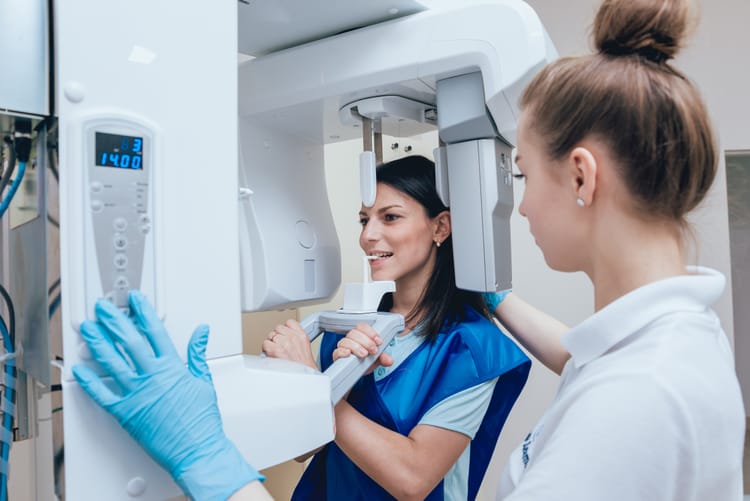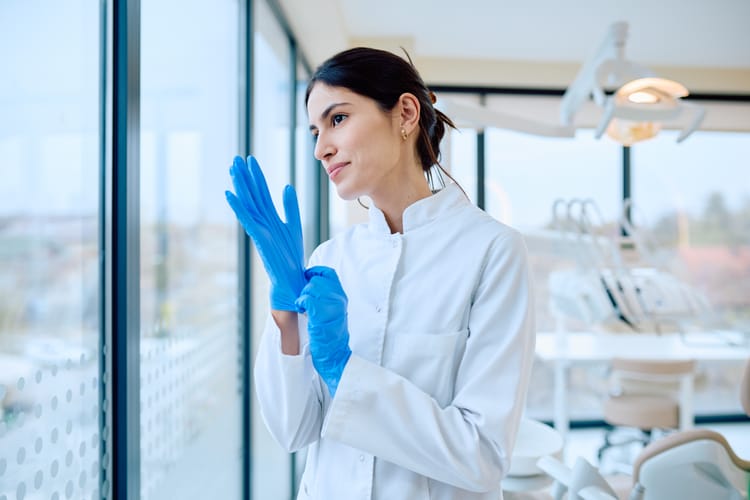The bacteria that could replace the toothbrush

"Smart" bacteria might replace the toothbrush. Researchers are exploring ways to alter bacterial behavior, potentially directing them to clean the mouth. We also take a look at how pervasive plastics are in dentistry and a type of shark with an oddly placed tooth.
While dentistry keeps practitioners busy in the office and lab, they also lead full personal lives. We get a behind-the-scenes look at Terri Alani, DDS, aka the Texas Tooth Lady, as she competes on "The Golden Bachelor."

Is "pee-cycling" the next frontier? Researchers suggest human urine could be repurposed as hydroxyapatite, the mineral that strengthens teeth
Tariffs and toothpaste. Imported Indian goods face tariffs of up to 50%, prompting calls for boycotts of American brands in India, including Colgate toothpaste.
A shark with a bizarre use for teeth. Think you've seen it all when it comes to teeth? The ghost shark has an appendage on its forehead adorned with teeth. This odd biological structure comes in handy while mating.
How to keep learning as a dentist. Dental education continues even on the job. Keeping that in mind can help dentists remain competitive.
The potential in dental office design. Mark Tholen, DDS, practiced as a dentist and then became a dental office architect. On an episode of "The Dentalpreneur Podcast," he talks about the importance of office design in dentistry.

Could 'smart' bacteria replace brushing?
Dentists are no strangers to patients who struggle to keep up with brushing and flossing. In the future, bacteria might take over and do the heavy lifting of oral hygiene. Genetic researchers are looking for ways to engineer helpful bacteria that will outcompete the types of bacteria that cause cavities in the mouth.
Why it matters: Exciting research like this offers a glimpse into another possible strategy for improving oral health. (Earth.com)
Embracing preventive dental education and strategies
Dentists have a host of solutions available in the world of restorative dentistry, but Gordon J. Christensen, DDS, PhD, MSD, argues that it remains essential to focus on preventive dentistry, particularly in younger patients. Education and support for patient compliance with oral health care can help preserve natural teeth and avoid the need for complex dental procedures.
Why it matters: Providing dental education to parents, young children and teens can help overall oral health outcomes. (Dental Economics)
Dentistry has a plastics problem
Microplastics are gaining more attention due to their impact on the environment and human health. Dentistry is a considerable source of microplastics. Toothpaste, dental floss, dentures, resin-based composite and acrylic nightguards all shed microplastics.
Why it matters: Dentistry may need to evolve as we learn more about the risks of microplastics. (The Conversation)

- CDA releases new Oral Health Equity Report
- SprintRay acquires EnvisionTEC to grow dental 3D printing offerings
- Understanding oral and mental health connection
- Maple and chamomile for combating tooth decay?
Thanks for reading today's edition! You can reach the newsletter team at newsletter@dentalbite.co. We enjoy hearing from you.
Interested in advertising? Email us at newslettersales@mvfglobal.com
Dental Bite is curated and written by Carrie Pallardy and edited by Lesley McKenzie.



